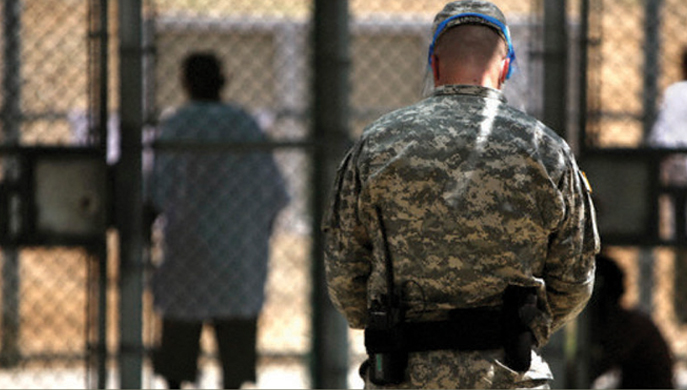
Record date:
Robert C. Doyle: The Enemy in Our Hands: America's Treatment of Prisoners of War from the Revolution to the War on Terror
Wars are not won or lost by the way prisoners are treated, but it does hold considerable sway over how their history is written.
The Enemy in Our Hands begins with the Revolution, when a captured British or Hessian officer could expect a relatively benign experience: housing in private residences or inns, permission to roam up to ten miles, and nothing more severe than having to sit through the occasional rendition of “Yankee Doodle”. However, Americans who remained loyal to the British crown were widely despised, kept in close confinement, and often put on trial – with execution as judgment.
Doyle finds a similar pattern throughout American history, contrasting the humane treatment of German POWs during World War II to the hellish conditions at Andersonville during the Civil War – lenience toward foreign prisoners with little tolerance for the enemy within. But he argues that a new paradigm has emerged in Afghanistan and Iraq, with attacks upon civilians by a new kind of enemy – under no flag of any nation – and harsh treatment of detainees at Bagram and Abu Ghraib. At some times, Doyle says, prisoner abuse has been unavoidable; at other times, it has not only been counter-productive, but it has also put American soldiers at risk for reprisals.
Robert C. Doyle, a former naval intelligence officer and Vietnam veteran, is a professor of history at the Franciscan University of Steubenville in Ohio. He is also the author of A Prisoner's Duty: Great Escapes in U.S. Military History and Voices from Captivity: Interpreting the American POW Narrative. He has been a consultant on several films and documentaries, including Hart's War.










